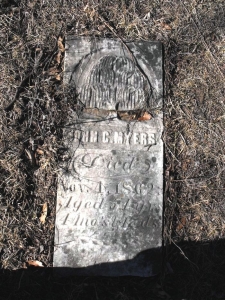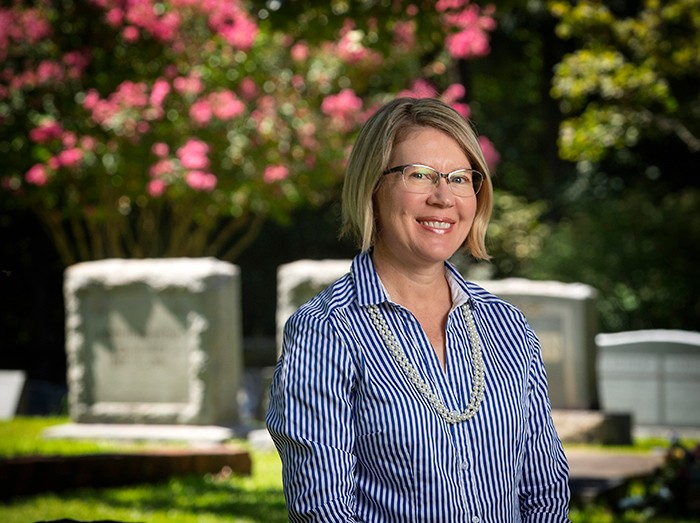Walking through the cemetery might not be most people’s idea of fun, but it helps to have a good tour guide.
On Memorial Day, my grandparents would load up the backseat of their VW Beetle with bags of plastic flowers, a picnic lunch and whatever grandchild happened to be handy. They had ancestors in 11 local cemeteries, so paying their respects was often an all-day trek.

These visits weren’t sad — far from it. I still remember their laughter as they paused to tell stories at each headstone. While most of the stories have slipped away, one stuck tight. Although I did have to call my father and aunt to flesh out the details.
When the Civil War broke out in late 1861, residents of Caldwell County, Mo., were required to take loyalty oaths to the U.S. government. My great-great-great grandfather John C. Myers was the county sheriff and was known as a “mouthy” individual. He was also a staunch secessionist. He refused to take the oath, resigned his office and left the county – headed south to join the Confederate forces.
Nearly a year later, he returned to the area for unknown reasons, bragging that he could outwit the roving bands of pro-Union militia — and for a time he did.
On Nov. 4, 1862, he was eating dinner with a friend, intending to stay the night. His friend wasn’t keen on the idea and urged him to move on, saying “You may get us both in trouble.” Myers laughed, replying “These are my friends and neighbors. I’ll be fine.”
Not long after sunset, one of the children was outside and heard rustling in the dry leaves of a nearby woods. It was the unmistakable sound of many men approaching the house. She ran to raise the alarm, bringing her father to the porch. He tried to reason with the armed militiamen and to buy his friend some time, but the ploy didn’t work.
Myers had run out the back door, trying to escape through a corn field. The men heard him running and fired after him, killing Myers in his friend’s field.
His distraught wife never returned to the town where her husband was killed, but you can still see the marker for John C. Myers, 1808-1862, in a small Caldwell County cemetery where my grandparents told me his story.
- Take a Bough
- Discover Hillcrest
- Going Through a Phrase
- A Cut Above
- Dive into Adventure at the Greensboro Science Center
- Nonprofit Spotlight: Team Drea
- Worth the Drive: On the Square in Tarboro
- Key Lime Gose from Durty Bull Brewing Company
- Port Cask Finished Virginia-Highland Whisky from the Virginia Distillery Co.
- Home Tour: Light and Bright
- Small Business Spotlight: City Garden Design
- Garden Adventurer: It’s Tatarian Aster Time!
- From the Editor: October 2019






